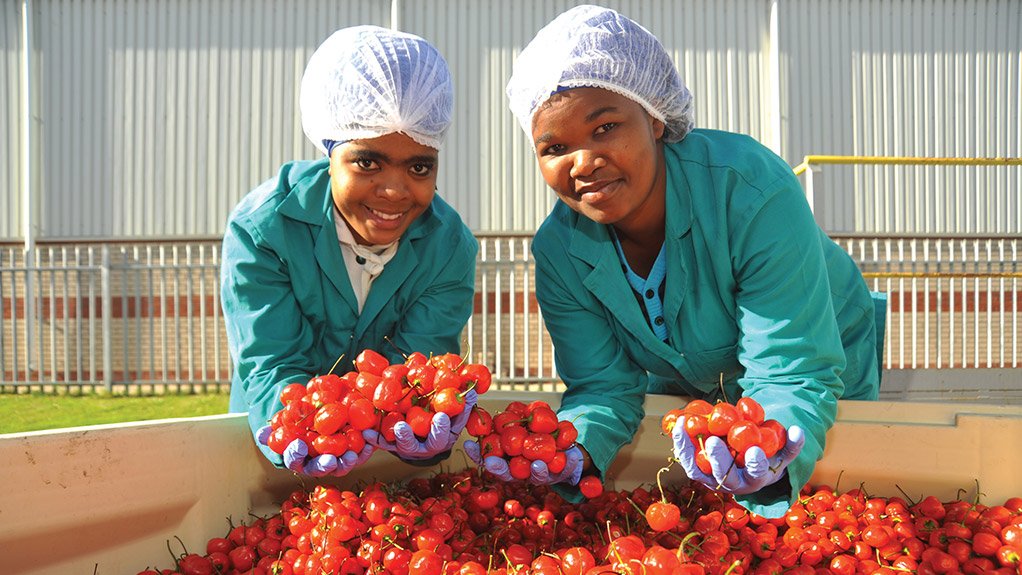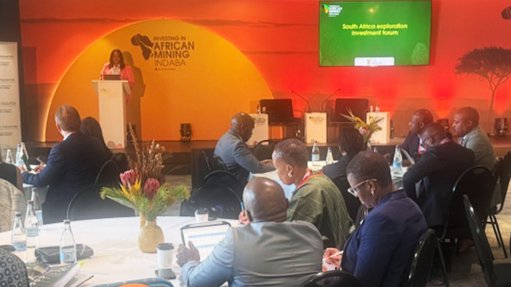Sidestepping industrialisation to move straight to services is hurting the economy, Cilliers says
Skipping industrialisation and transitioning directly to the services sector is one of the key reasons for Africa’s lacklustre economic growth, Institute for Security Studies founder and former executive director Dr Jakkie Cilliers has said.
Speaking at the Manufacturing Indaba conference and exhibition, in Sandton, on October 22, he said industrialisation was crucial to the productive transformation of a country's economy towards sustainable, high-growth, employment creating prosperity, with manufacturing historically proving to bring inherently faster productive growth than other sectors – especially the services sectors.
“A country like India has tried to transition directly to the services sector, but it grows slower because it has a lower demographic dividend and also because manufacturing, which is what China has done, just has a larger impact on the productive transformation of the country. That is because manufacturing impacts on services and agriculture.”
“There are some that argue that the services sector has higher growth potential combined with information and communication technology in the future. I think that the jury on that is still out. Manufacturing transforms your whole economy,” Cilliers explained.
He said Africa’s economic potential was being hamstrung by the relatively small size of the manufacturing sector and the move towards a services-led economy.
“The problem is that the transition in Africa is from traditional farming practices in rural areas to low-end services in urban, informal areas. This is not a productivity-enhancing activity. If you went from agriculture, first go up the agricultural value chain and then transition into manufacturing, and then, eventually, to services. This is the recipe that all high-income countries have followed. That's how you grow an economy. Africa is not, at the moment, following that transition,” Cilliers said.
He said the relatively low levels of the contribution of manufacturing to GDP showed that Africa was deindustrialised.
“There is deindustrialisation of Africa, compared to, for example, growth seen in East Asia, where the contribution of the manufacturing sector is 20% to 25%. In Africa, this contribution is constant at about 16 % to 17%. If you want to grow Africa’s economy, you have to industrialise and change that sector so that the African economy becomes more productive. This changes the entire productive structure of your economy,” Cilliers said.
He said the reasons for this were that Africa had inadequate infrastructure, high transportation costs, limited access to capital, bad policies, poor governance and poor implementation.
“At one point, everybody was trying special economic zones. We haven't really applied that very well in Africa, yielding only smaller, fragmented markets with limited economies of scale. The Africa Continental Free Trade Area will fix that, and hopefully down the line eliminate political instability, weak institutions, and the perception that Africa is a high-risk investment destination. The reality is that there is instability in certain pockets, but there are many African countries that do very well,” Cilliers explained.
He said Africa must do what rich countries have done elsewhere, which is to invest in food security and agroprocessing.
“Africa has not had an agricultural revolution. We love talking about agriculture, but without food security, we’re not secure. People are moving from rural areas to urban areas, basically to escape poverty in rural areas,” he said.
Cilliers said it was necessary to pursue a manufacturing transition that supported the agricultural sector, and eventually embrace knowledge-based services and low-end manufacturing.
“Modern technology can help many people, but you need electricity, and 500-milion Africans don't have it. You also need Internet access,” he said.
Cilliers emphasised that household electricity and Internet access were prerequisites for everything else.
Further, he said it was crucial to invest in a knowledge economy to reduce commodity export dependence.
“Africa's growth has always been driven by commodity exports, which is highly volatile and a hugely problematic,” he said.
Finally, Cilliers advocated for the formalisation of the informal sector.
“The informal sector is a huge drag on growth. We have to formalize the informal sector,” he said.
Article Enquiry
Email Article
Save Article
Feedback
To advertise email advertising@creamermedia.co.za or click here
Announcements
What's On
Subscribe to improve your user experience...
Option 1 (equivalent of R125 a month):
Receive a weekly copy of Creamer Media's Engineering News & Mining Weekly magazine
(print copy for those in South Africa and e-magazine for those outside of South Africa)
Receive daily email newsletters
Access to full search results
Access archive of magazine back copies
Access to Projects in Progress
Access to ONE Research Report of your choice in PDF format
Option 2 (equivalent of R375 a month):
All benefits from Option 1
PLUS
Access to Creamer Media's Research Channel Africa for ALL Research Reports, in PDF format, on various industrial and mining sectors
including Electricity; Water; Energy Transition; Hydrogen; Roads, Rail and Ports; Coal; Gold; Platinum; Battery Metals; etc.
Already a subscriber?
Forgotten your password?
Receive weekly copy of Creamer Media's Engineering News & Mining Weekly magazine (print copy for those in South Africa and e-magazine for those outside of South Africa)
➕
Recieve daily email newsletters
➕
Access to full search results
➕
Access archive of magazine back copies
➕
Access to Projects in Progress
➕
Access to ONE Research Report of your choice in PDF format
RESEARCH CHANNEL AFRICA
R4500 (equivalent of R375 a month)
SUBSCRIBEAll benefits from Option 1
➕
Access to Creamer Media's Research Channel Africa for ALL Research Reports on various industrial and mining sectors, in PDF format, including on:
Electricity
➕
Water
➕
Energy Transition
➕
Hydrogen
➕
Roads, Rail and Ports
➕
Coal
➕
Gold
➕
Platinum
➕
Battery Metals
➕
etc.
Receive all benefits from Option 1 or Option 2 delivered to numerous people at your company
➕
Multiple User names and Passwords for simultaneous log-ins
➕
Intranet integration access to all in your organisation





















